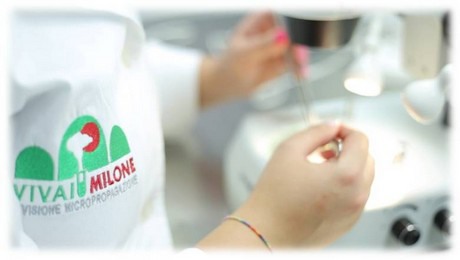
"We decided to create our own laboratory to keep up with the times. As we are a certified nursery garden, sourcing the material to propagate citrus plants is more and more difficult. This is due to various reasons - for example, a recent batch of seeds from California was blocked because of citrus greening. It may take years to find a solution, so all rootstocks from that area cannot be used and there are no alternatives in Italy or Europe. In these cases, the only option is micropropagation, and there are not enough laboratories working with citrus fruit in Italy," explains agronomist and lab technician Emanuela Milione.
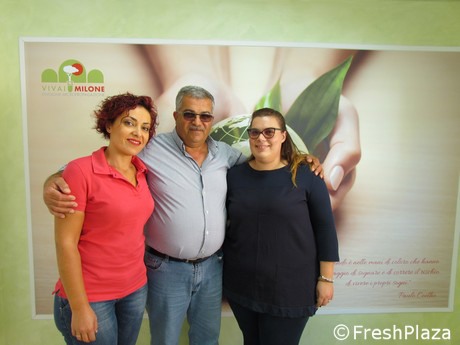
Emanuela Milone (right) with her father Carlo and sister Maria Grazia.
While at University, Emanuela had the chance to learn about this technique and fall in love with it. "I wanted to work with citrus fruit during my internship in a laboratory and, as soon as we had the chance, we created our own laboratory. At the moment, the lab potential is far more than we need, as it can produce over triple the plants. We decided to do things this way so we could be self-sufficient and provide our services to third parties."
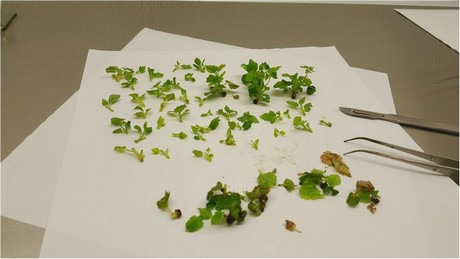
Micropropagation is an expensive technique, so "producing only for ourselves would not have been profitable and we would not have been able to repay our initial investment."
Due to geographical reasons, almost nobody works with citrus fruit in our country. "In Italy there is no commercial application for citrus fruit propagation. In addition, citrus species do not adapt well to in vitro conditions, so our work is experimental."
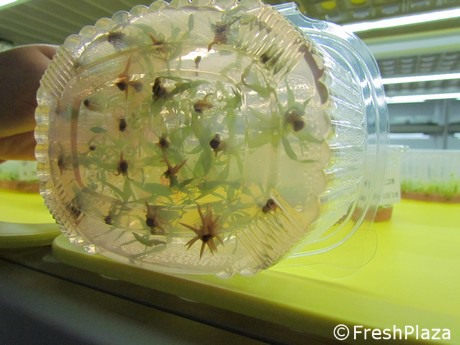
Mircropropagation is one of the applications of in vitro culture. It is a rapid clonal multiplication technique that starts with a careful selection of the plant to multiply (the mother plant), based on its genetic and phitosanitary characteristics. A portion of the mother plant is then selected (the explant) to start propagation, i.e. the attainment of a large number of individuals (clones) with identical genetic characteristics.
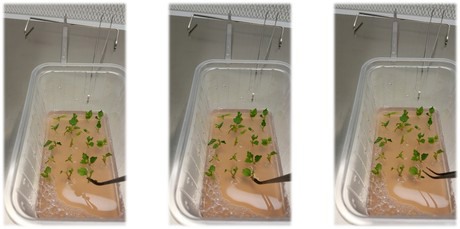
Micropropagation is an alternative when there are no other valid strategies, e.g. for plants rejecting other propagation methods. "It may happen that seeds have low germinability, cuttings do not develop roots or rootstocks do not attach. It can, though, become a method to support other techniques when many plants are needed in a short times."
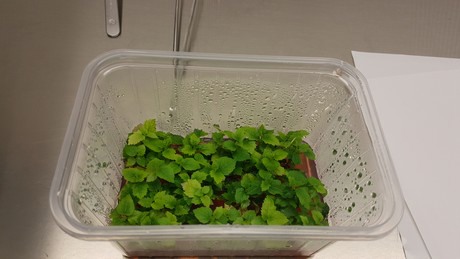
There are four phases in micropropagations - in vitro sterilisation and establishment; maintenance and multiplication; rooting; hardening.
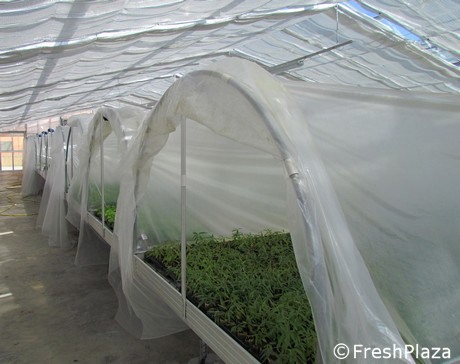
Above and below: hardening tunnel.
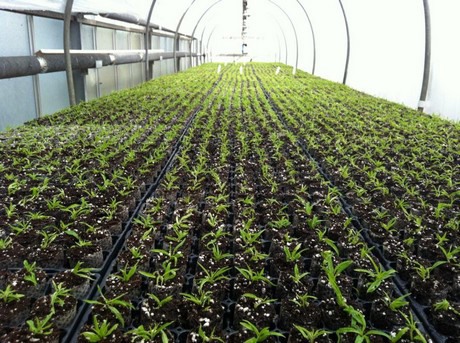
Laboratory
The micropropagation lab facility is a pre-existing agricultural metal and glass greenhouse. There are also 250 square metres for plant hardening.
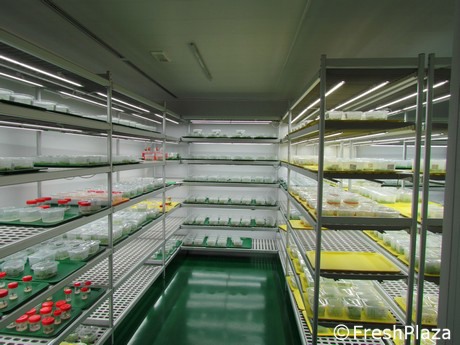
Above and below: growing chamber.
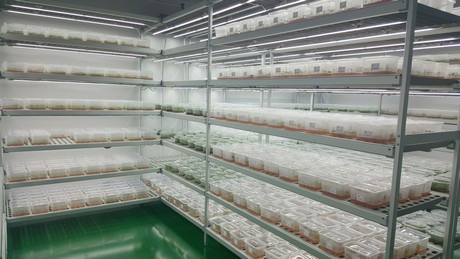
The innovative choices made when creating the laboratory had the objective of guaranteeing its maximum efficiency for improved productivity, cost containment, energy saving and overall sustainability. The walls of the two growing chambers, for example, have been insulated to require very little air conditioning and are illuminated with LED lights.
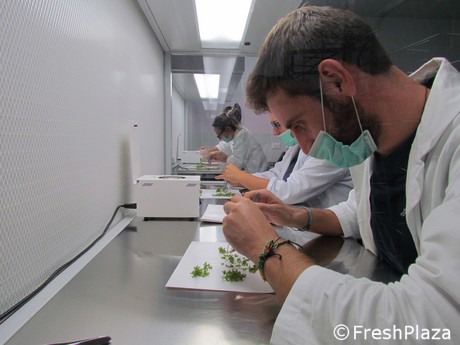
As regards the team, Emanuela says that "training has been essential, as strict rules are needed for in vitro operations."
In addition, we must stress that the lab is also able to rehabilitate infected citrus, thanks to the micrografitng technique.
Contacts:
 Vivai Milone
Vivai MiloneC.da Cerasia, 32
88046 Lamezia Terme (CZ)
Tel.: +39 0968 209067
Fax: +39 0968 1940607
Email: emauela@vivaimilone.it
Web: www.vivaimilone.it
